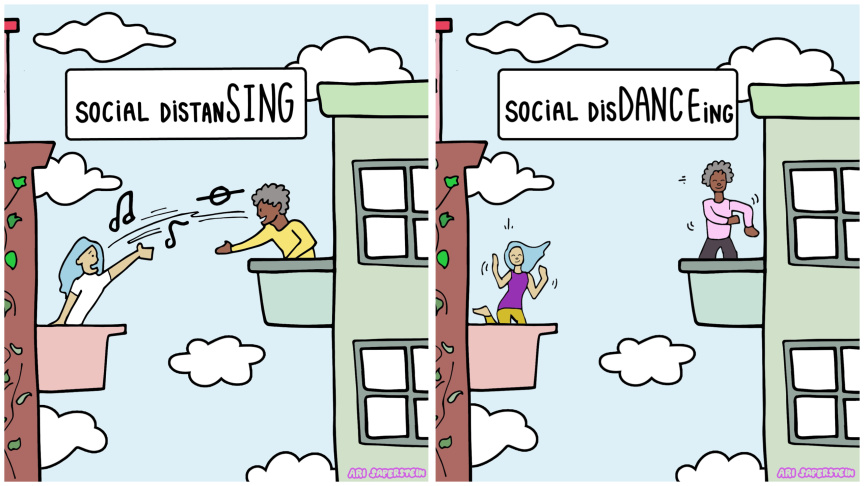This week, as I ventured out for essential errands, I noticed a phenomenon caused by social distancing. People may be staying six feet away, but they’re looking me in the eyes.
Have you noticed this, too?
I often hear within this mutual recognition of a smile or nod, I’m OK. You OK? Good. We’re both good. Sometimes the look says, This is wild, right?
The recognition of one another as alive and well is a welcome shift. There’s a feeling that we’re all in this together, and we’ll get through this, even though it may get more challenging before it gets easier.
My husband and I chatted with a woman from North Dakota as she helped us custom order a gluten-free pizza at the deli. She reminisced of the days when kids were simply thrown out the back door to go play in the dirt. Now when her grandkids visit, they say to her, We know, Nana. Where’s the basket… where they leave all electronic devices at the door. They run out back to play beanbag toss, or do art projects and baking indoors. By the time the visit is over, they don’t want to go home.
Let the kids eat some dirt and worms, she added. Then they’ll be healthy.
We haven’t had a crisis like this in nearly twenty years—the kind that touches the whole world and changes daily life. Long lasting changes will come from this, too. Perhaps more of our freedoms will be taken away in name of safety, security and health. Maybe more of us will get involved with democracy rather than assuming the government will take care of us. Or we may awaken to the reality that we’re all connected and begin to take more responsibility for ourselves, more stewardship of other life forms on the planet. We’ll see.
But we do have an unprecedented opportunity to trade in entitlement for gratitude. What a shift that would be in our country if gratitude took hold.
A pandemic can help us be grateful for the time we do have in the company of family and friends, grateful for the hugs in greeting that we used to take for granted, grateful for any occasion to gather in one place at one time. Meanwhile, there’s an opportunity to see one another in the virtual landscape. It’s not the same, vibrationally speaking—anyone who has Skyped with a spouse overseas or a grandchild across the country knows that—but it is being together in time.
We will each experience this period of history in our own way. We have choice in how we respond. We can be an uplifting presence no matter the circumstances, draw our loved ones closer in our hearts, and give more charity to all.
(Illustration: Ari Saperstein for LAist)

